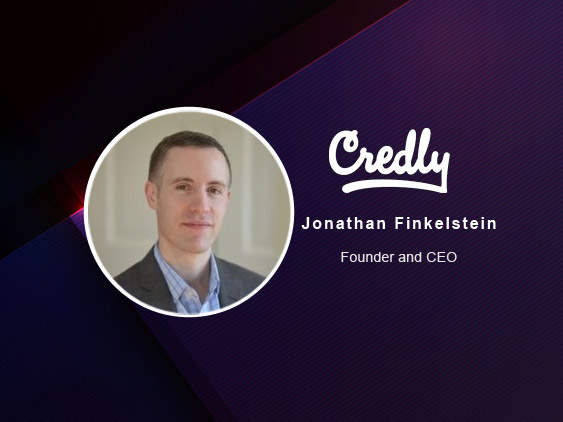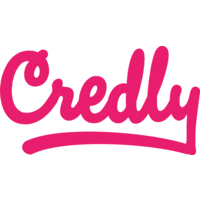HR Tech is playing an important role at the workplace today; HR teams and business leaders can now optimize their efforts and drive efficient hiring and recruitment practices and increase employee engagement with a smart array of HR tools. But as workplace trends shift due to the Covid19 pandemic, what will businesses need most from both their HR and HR Tech stack? Jonathan Finkelstein, Founder and CEO at Credly shares some thoughts….
_____
Tell us a little about yourself Jonathan, and how you ventured into this segment…we’d love to hear about your startup journey.
I’m the child of two New York City public school teachers who inspired an appreciation for lifelong learning. They also exposed me to the diverse ways in which people develop new skills, and how access to high quality educational experiences can lead to systemic and social change.
I co-found a few companies which helped popularize technology we now take for granted in the flow of work and learning. HorizonLive, which was acquired by Blackboard, brought real-time online communication to learning and workforce training (an arena which was the subject of my first book, Learning in Real Time). I went on to start LearningTimes, which harnessed new technology for social interaction and learning online to achieve workforce transformation, professional development and upskilling at scale.
That work led to the creation of Credly in 2012. Credly helps individuals receive digital, verified recognition of their skills and connect their credentials to opportunities. We enable organizations, in turn, to make more informed and more efficient human capital decisions on the basis of trusted information about what people actually know and can do. I also recently became a dad, which has made Credly’s mission to build a more equitable world of work even more personal and more urgent.
Read More: Global Payroll and Employee Benefits Software that can Support Daily HR Needs
Given the current business climate, where employers and employees are adjusting to the new normal, what top tips do you have in mind for employers and leaders as they formulate strategies to adapt to the new challenges posed by COVID-19, and as they redefine their post-COVID-19 back-to-office employee culture?
First, employees need to be equipped with transferable skills because the new world of work will require a shift toward new roles and new skill sets, and will favor those who can apply their skills in new contexts. Verified, skill-based credentials are some of the most important assets for helping companies and workers identify transferable skills and manage those transitions smoothly and with dignity.
Secondly, diversity and inclusion initiatives are vital. In the wake of a collective awakening to systemic inequities in society, , business leaders and managers must bring intentionality to how they improve organizational diversity. Ample research demonstrates what the most heterogeneous organizations already know — that workplace diversity makes an organization more effective, more successful, and more profitable. Employees are now pushing more than ever for meaningful D&I initiatives and are holding their organizations accountable. And it’s about time – it’s the right thing to do and it’s long overdue.
When it comes to Diversity and Inclusion in hiring and building teams, what are some best practices you think companies should incorporate?
When it comes to diversity and inclusion, especially when hiring and building teams, I challenge all business leaders to look at it from a skills-based perspective. Approaches that rely – even subconsciously – on assumptions we make about people based on things like where they went to school or their last name pervade our hiring and recruiting processes and are fraught with bias that hold individuals and organizations back. Focusing instead on the specific set of skills a candidate has demonstrated removes biases from the decision-making process and lets the organization hire the best fit for their team. At Credly, we long ago removed degree and years of experience requirements from our open job descriptions, and we’ve attracted amazing talent whose learning and skills were earned through non-traditional pathways. We’re so much better for it.
Could you talk about some of the most important employee benefits that the new normal is going to force companies to reconsider or add to the system?
In the past, organizations tried to improve the employee experience by offering perks like ping-pong tables and kombucha on tap. As we enter the new world of work, the most impactful benefits an organization can offer its people will be employer-provided opportunities for learning and development. Employers with an ingrained culture of learning create a workforce that is skilled up for what the organization needs now, while becoming agile enough to respond to future needs. Employees are looking for a place to learn, not just a place to work. That means businesses will be seen more like colleges and universities in the new world of work. And just like education institutions, employers will provide portable proof of the skills their people learn and demonstrate. Employer-issued credentials are becoming a baseline expectation for any modern benefits program.
What are your thoughts on the impact of HR Tech in enabling better employee cultures and D&I? How can companies align all of this with the right tech?
From driving more efficient hiring and recruiting strategies to increasing employee retention and engagement, HR tech plays a critical role in the workplace today. There is a growing appreciation for an ecosystem approach to HR tech, where multiple tools and platforms — rather than one platform which struggles to do it all well — can tackle strategic priorities like access to learning content and career pathways, employee engagement and building a more equitable corporate culture. Digital credentials are one tool that helps leading organizations unify the employee experience and use of trusted data across tech and platforms. As a common currency for human capital and skills, credentials streamline processes, help build diverse teams, improve employee engagement, and establish an inclusive workplace.
HR Technology News: TecHRseries Interview with Deborah Kearney, Global Senior Director of Human Resources at Cygilant
While several teams globally have been vocal about the benefits of the new shift to work from home, what do you see as some of the cons associated with having more employees working remote? How can organizations address these challenges?
The majority of our employees are based out of our two physical offices, but Credly has always also embraced remote team members. Geography should not trump skills or be an impediment to bringing on the best talent. This hybrid workplace culture has worked out very well, and it prepared us to quickly and smoothly transition to an entirely remote workforce during the pandemic.
Unless you bring intentionality to create a cohesive sense of community, remote workers can sometimes feel isolated or disconnected from what everyone else is doing. You want your employees to feel a direct connection between their individual contributions, their team’s efforts, the company mission, and day-to-day progress. We employ a variety of approaches, big and small, to keep all of our team members engaged. For example, we use super-quick weekly surveys – usually with just one question – so employees can provide real-time feedback on a range of topics. This allows us to make rapid adjustments to company operations and positively impact culture. e We also try to make our virtual meetings fun, engaging and worthy of everyone logging in at the same time. People are encouraged to use video, even if family members or roommates are wandering by; it helps people be more authentic and literally bring their full selves to work. And we offer ongoing learning opportunities, which include digital credentials as a way to recognize the skills cultivated and to give each person a sense of ownership over the human capital they’ve developed.
We’d love to hear about your future plans for Credly! Tell us what you’re excited about, right now.
It’s clearer than ever that Credly is playing an important role in shaping a more diverse, inclusive workforce. As the workplace continues to place more emphasis on earned skills, digital credentials are there to act as a source of truth for human capital decisions. We’re driving the change towards a future of work that cares less about stagnant, opaque proxies, and more about the use of competency and skill as the currency of the labor market.
Can you share a few general thoughts / tips for businesses worldwide dealing with the current world pandemic?
While working hard, learning new professional skills, and navigating what may be enormous disruptions to business plans are essential right now, remember that nothing is a higher priority than your team’s health. It’s especially easy to think you are doing enough when it comes to mental health — yet I think most leaders will find they can always do more. Little things can add up. Facilitate virtual team-building activities, offer online meditation and yoga sessions, and encourage your employees to step away from their computers to rejuvenate. And remember to encourage the use of vacation time, even if people are not able to literally get away during the pandemic. Getting away from work brings people back more focused and productive and avoids burn out. Even better if, as a team leader, you model it for them! Emphasize humanity over work, and remind everyone that we’re all navigating this together.
Read More: Top Metrics to Help You Measure your Recruiting ROI
Credly is helping the world speak a common language about people’s knowledge, skills, and abilities. Thousands of employers, training organizations, associations, certification programs, and workforce development initiatives use Credly to help individuals translate their learning experiences into professional opportunities using trusted, portable, digital credentials.
Jonathan Finkelstein is the Founder and CEO at Credly, a platform that helps individuals receive digital, verified recognition of their skills and connect their credentials to opportunities


